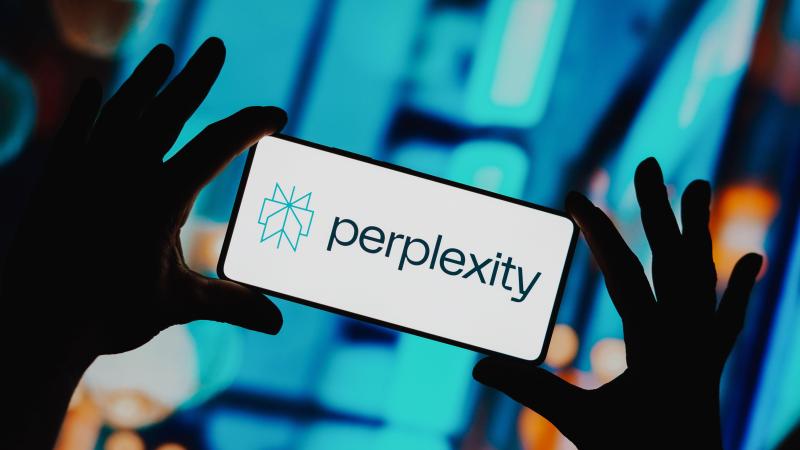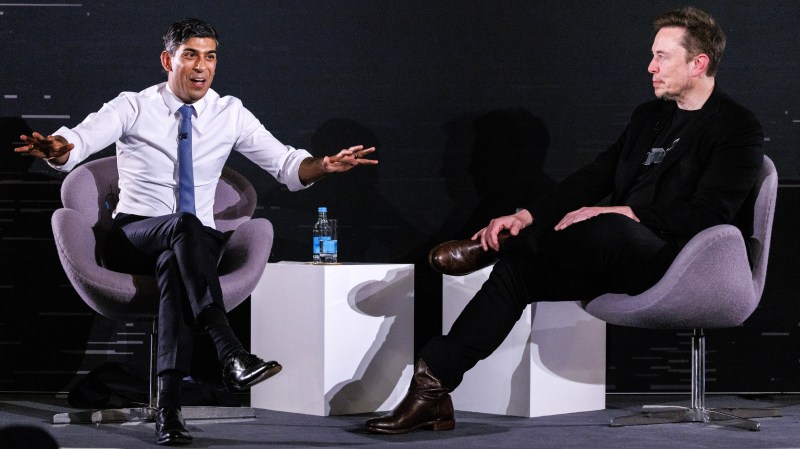The AI rivals hoping to put Google search out of business
Jeremiah Owyang broke a decades-old habit that he never thought he’d kick. No, not smoking or drinking, but something that is, for many, just as addictive: Google.
“I don’t ‘Google it’ any more. It’s a back-up now,” said Owyang, an investor at Blitzscaling Ventures. “That’s 20 years of behaviour unlearnt in just a few months.”
So what has knocked Google from its perch as his first stop on the internet? The answer is Perplexity AI, a one-year-old artificial intelligence search start-up that, rather than pumping out endless pages of web links in the style of Google, provides answers to natural language questions. And those answers are embedded with links to its sources, so you can easily check whether they are likely to be true or not.
Owyang is not alone. Austen Allred, founder of the education start-up BloomTech, said recently: “Perplexity is the first app I’ve ever used that I can realistically see replacing Google for me in the long run.”
For the first time this century, Google — which handles nine out of every ten searches and last year sold more than $280 billion (£225 billion) in ads, which it stuffed within those results — faces a threat to its dominance.
And that threat is start-ups such as Perplexity, built on rapidly improving AI that understands and responds to natural language prompts, portending a fundamental shift in how we interact with technology. We will be able to talk to computers, and they will talk back. In that world, a static list of ads and website links feels suddenly less useful.
It was against that backdrop last week that some of the world’s biggest tech names made a series of dramatic moves in what is shaping up to be an epic landgrab for a technology that, experts reckon, will become as ubiquitous and transformational as electricity.
Meta and IBM teamed up to create a global “AI Alliance” — along with 50 other companies, universities and foundations — to promote the open creation and sharing of foundational AI systems, such as Meta’s powerful Lllama language model. Meanwhile, the UK Competition and Markets Authority (CMA) announced a probe into whether Microsoft has in effect taken control of ChatGPT’s creator, OpenAI, where it has invested $13 billion and owns a 49 per cent stake. The inquiry was prompted by the unsuccessful attempt by OpenAI’s board last month to fire chief executive Sam Altman. Amid the ensuing chaos, Microsoft threatened to poach most of the company’s staff and emerged with a non-voting board seat.
Then, Google owner Alphabet released Gemini, its powerful new AI model and the latest attempt by the $1.7 trillion giant to show that this moment of frenetic AI development — “unrivalled”, the CMA said, “in economic history” — will not pass it by.
Some of the demo videos it released — and there were many — were jaw-dropping. The system, married to a camera, was able to understand not just written words but crude pen-and paper drawings and hand gestures, like when a person played “rock-paper-scissors”. It responded to spoken prompts and created simple games.
When the system saw a rubber duck, it predicted it would float (because it was rubber), told the person the word for duck in Mandarin, and then helped pronounce it properly.
Unlike many AI models that are limited to understanding and responding in text, Gemini promises to be “multi-modal”, meaning it can interpret audio, video, words, images and software code. “Gemini can understand the world around us in the way that we do,” said Demis Hassabis, the British computer scientist who runs Google’s AI arm, DeepMind. “In each one of 50 different subject areas that we tested on, it’s as good as the best expert humans in those areas.”
Google’s immediate target was the San Francisco-based OpenAI, which launched ChatGPT, its impressively capable chatbot, a year ago. It was, by many measures, the most successful product launch ever, being used by more than 100 million people each week. The company has since announced the imminent launch of an app store, which would allow companies to build tools on top of ChatGPT. And last month, it unveiled multi-modal capabilities very similar to Gemini’s.
Google has created three versions of its rival product. The least powerful, Gemini Nano, is available now and can run on mobile devices. The company’s most powerful version — the one that featured in all the whizzy demos — won’t come out until next year, while the mid-tier option, Gemini Pro, for software developers, is available this week.
Despite last week’s polished roll-out, one got the distinct sense that this was a rush job due to mounting pressure on chief executive Sundar Pichai to show Alphabet was not off the pace set by OpenAI. It emerged that some of the demo videos were creatively edited to give the impression that Gemini was quicker and more powerful than it actually is.
When ChatGPT set the world alight last year, Pichai declared it a “code red” for Alphabet. He bashed together DeepMind and Google Brain, two AI divisions that for years had operated separately, while Google’s hands-off founders Larry Page and Sergey Brin parachuted back in. The Gemini white paper credits Brin as one of its creators.
The ability of machines to hear, see and respond in natural language cannot be understated because it threatens to transform how people use technology. This is why OpenAI’s Altman has begun talking to Sir Jony Ive, the iPhone designer, about creating a novel mobile device that would be built around AI’s unique capabilities.
For Google, the stakes could not be higher. For billions of people, the primary way in which they gain access to the web is via the Google search window, typically on a mobile device. This is not an accident. It emerged in the federal government’s anti-trust case that, in 2021 alone, Alphabet paid an astonishing $26 billion to the likes of Apple and Samsung to secure its place as the default search engine on their devices.
But what if our devices change? What if we can simply converse with our devices? This is the future that the company sees barrelling towards it, and Gemini is its attempt to not get squashed. People like Owyang, however, are exactly what Google is afraid of.
The investor has replaced his Google habit principally with Perplexity, which was started by former OpenAI researcher Aravind Srinivas. But Owyang has also started using others to fill in the gaps. He talks through ideas for speeches, or about market trends, with Pi, an AI personal assistant invented by Inflection, a start-up launched last year by DeepMind co-founder Mustafa Suleyman (Owyang is an investor). And he relies on ChatGPT as a business assistant.
People have griped for years that Google is not what it used to be — that it has become a glorified Yellow Pages overflowing with ads that shove the genuine results to the bottom. “Google search is actually disrespectful to users,” said Owyang. “It has the answers that we seek; it just chooses not to show us in order to monetise with ads.”
Until recently, there was little other choice.






